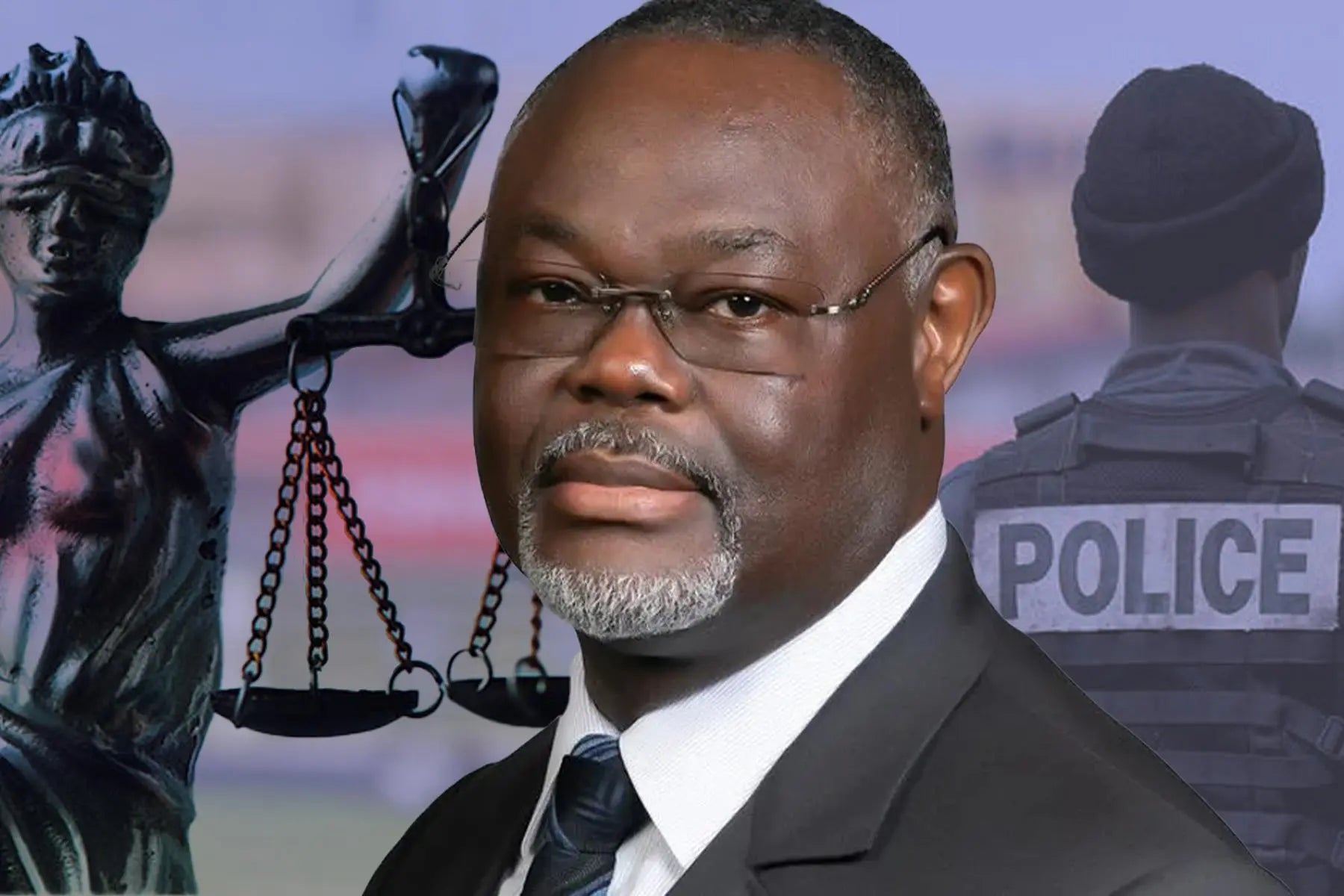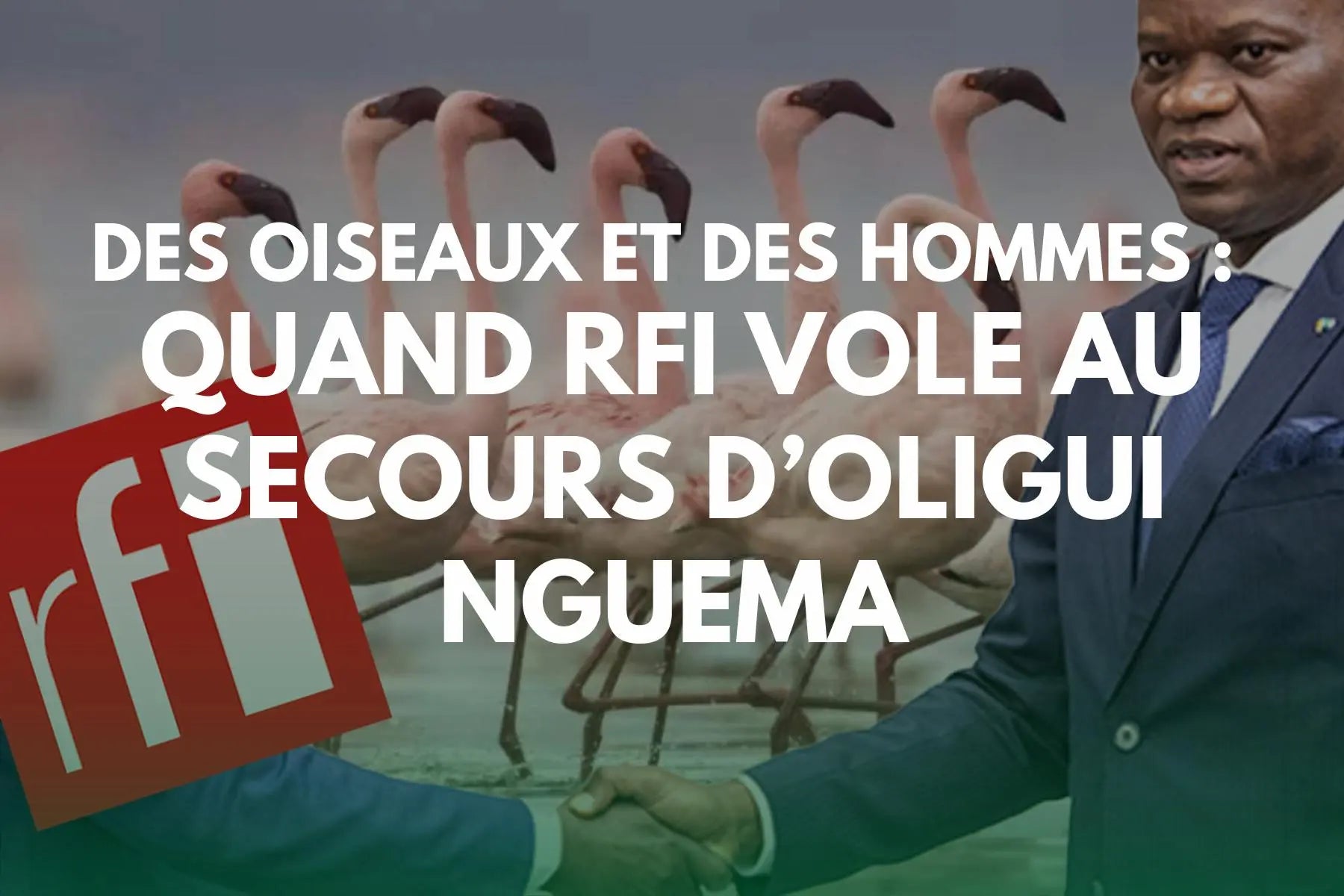
After the referendum, Hervé Patrick Opiangha continued: signs of an expected political purge?
Just a few days after the announced triumph of the "yes" vote in the constitutional referendum, Gabon seems to be embarking on a dynamic of targeted purges against political opponents. Hervé Patrick Opiangha, president of the Union for Democracy and Social Integration (UDIS), is at the heart of a legal case that raises serious questions about his real motivations. While the courts accuse him of sexual abuse of a minor, many see this as the beginning of a series of political neutralizations put in place by the transitional president, Brice Clotaire Oligui Nguema.
Political targeting under the guise of justiceHervé Patrick Opiangah, president of the UDIS, was summoned to the Criminal Affairs Directorate. A summons that raises many questions, particularly about his political context, after his opposition to the constitutional referendum. https://t.co/S2M0VmQWE6
— Samba241 (@Sambaa241) November 21, 2024
On November 20, 2024, the Republican Guard and the Judicial Police surrounded the home of Hervé Patrick Opiangha. This forceful intervention took place despite the official postponement of his summons to the Criminal Affairs Directorate, obtained by his lawyers. This relentlessness raises questions: is this really a classic legal procedure or a political maneuver aimed at silencing an opponent? Since the alleged accusations against Opiangha have been known for a long time, why not have acted before, when the latter was Minister of Mines ?
Indeed, as early as 2022, journalists like Romain Molina were warning about these cases . But until recently, "OPH" was an ally of the President, and the cases of pedocriminality did not seem to worry the authorities more than that.
While some media outlets are pointing to the instrumentalization of justice , a message circulating on WhatsApp is attempting to divert attention by emphasizing the private and long-standing nature of the accusations brought against Opiangha. According to this message, these prosecutions have no connection with his political positions, but stem from a complaint filed by his wife and daughter for sexual abuse. However, this attempt at justification paradoxically contributes to fueling the theory of a disguised political purge: the massive dissemination of these accusations in a post-referendum context seems orchestrated to discredit a political figure opposed to the regime in power. All the more so since the "Opiangha affair" had been known for a long time.
Methods that recall other skies
Recent events in Gabon could echo Africa's dark days, when authoritarian regimes justified the repression of their opponents under false pretexts. Under the guise of "moralizing public life" or "fighting corruption," political figures were imprisoned or sidelined to strengthen the power in place.
In the case of Hervé Patrick Opiangha, the accusations of sexual abuse come at the very moment when the opponent had spoken out against the referendum whose results were disputed. Many see this as a troubling coincidence , reinforced by the absence of similar prosecutions against other figures critical of the regime. If Opiangha is indeed guilty, why all the media coverage, and why now?
A post-referendum that promises to be merciless[Politics] Gabon: Standing firm, Hervé Patrick Opiangah calls for a massive “NO” to the referendum https://t.co/kqIpkveAig
— Ferdinand DEMBA 🇬🇦 (@DembaFerdinand) November 14, 2024
While the constitutional referendum was supposed to mark a turning point for Gabonese democracy, recent events risk tarnishing this ambition. By multiplying targeted legal actions, Oligui Nguema is sending a worrying message: any form of opposition could be perceived as a threat to be neutralized. Worse still, all those who helped him in his conquest of power but who do not fall into line will fall one by one.
Who will be next?
Political repression, disguised as justice, risks creating a climate of lasting mistrust between institutions and citizens, and many of Oligui's allies or former allies could find themselves in a situation similar to that of "OPH".
The case of Hervé Patrick Opiangha thus goes far beyond its individual aspect. It illustrates the tensions and procrastination of a regime seeking consolidation. If the accusations brought against him are proven, they must be dealt with in strict compliance with justice, without instrumentalization. However, if they serve above all to discredit a political opponent, then Gabon is embarking on a dangerous path.
Gabonese people, civil society actors and international partners must remain vigilant in the face of these potential abuses. Can the country really afford to fall back into the pitfalls of an authoritarian power where justice becomes a political weapon?He who sulks moves. An authoritarian regime is no one's friend 🤣
— Lord of Nkoltang (@Observateurfang) November 21, 2024
Yesterday he was in all the photos after the coup next to the Shogun, today the state machine seems to be against him. 🤣🤣
I hope lovers of authoritarianism learn from this https://t.co/A3uJ7mUwQP
For focused people. https://t.co/wqMi8yCIBR
— Lukeni (@Lukeni241) November 21, 2024


